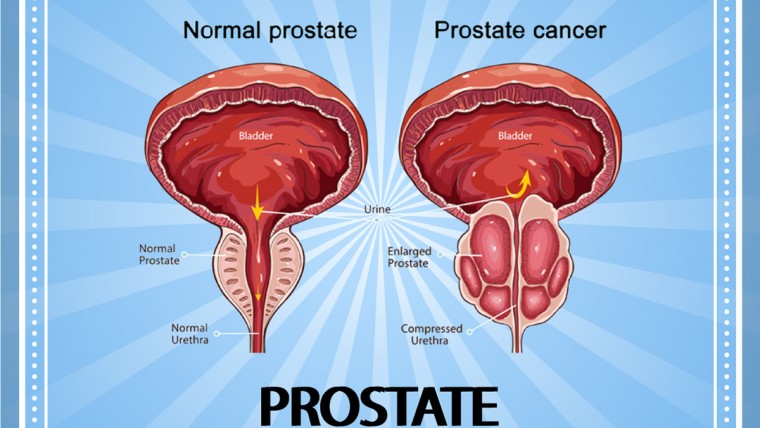Enlarged Prostate
Definition
The prostate is a gland that produces some of the fluid that carries sperm during ejaculation. The prostate gland surrounds the urethra, the tube through which urine passes out of the body.
An enlarged prostate means the gland has grown bigger. Prostate enlargement happens to almost all men as they get older.
An enlarged prostate is often called benign prostatic hyperplasia (BPH). It is not cancer, and it does not raise your risk for prostate cancer.
Alternative Names
BPH; Benign prostatic hyperplasia (hypertrophy); Prostate – enlarged.
Symptoms
For many men, prostate growth is a natural part of aging, like wrinkles. Learn about potential causes and risk factors that may increase your chance of developing benign prostate hyperplasia (BPH), the medical term for prostate enlargement.
Does a good night’s sleep seem like a distant dream? The frustrating trips to the bathroom every night may be the first sign of an enlarged prostate. Some other symptoms that you may have an enlarged prostate are:
- Dribbling at the end of urinating
- Inability to urinate (urinary retention)
- Incomplete emptying of your bladder
- Incontinence
- Pain with urination or bloody urine (these may indicate infection)
- Slowed or delayed start of the urinary stream
- Straining to urinate
- Strong and sudden urge to urinate
- Weak urine stream
Exams and Tests
Your health care provider will ask questions about your medical history. A digital rectal exam will also be done to feel the prostate gland. Other tests may include:
- Urine flow rate
- Post-void residual urine test to see how much urine is left in your bladder after you urinate
- Pressure-flow studies to measure the pressure in the bladder as you urinate
- Urinalysis to check for blood or infection
- Urine culture to check for infection
- Prostate-specific antigen (PSA) blood test to screen for prostate cancer
- Cystoscopy
- Blood urea nitrogen (BUN) and creatinine tests
You may be asked to fill out a form to rate how bad your symptoms are and how much they affect your daily life. Your provider can use this score to judge if your condition is getting worse over time.




